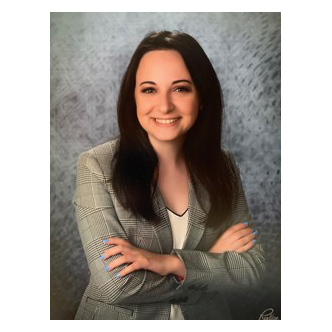
Samantha Holtz
For Samantha Holtz, it’s all about access to clean water. More than a billion people globally lack access to safe drinking water, and Holtz has been exploring solutions at both the community level and the policymaking side of this vital public health issue.
“I've always been into water, water scarcity, contamination,” Holtz says. “It’s the most important resource on the planet. Too many people don't have access to clean water, or the water they have access to harms them.”
She is pursuing her master of public health in environmental health degree at the College of Public Health with support from the Stauffenberg Endowed Scholarship.
Holtz studied environmental science as an undergraduate at the University of Maryland, but now she has returned to her native Philadelphia area to focus her graduate studies on environmental health. Her awareness of water scarcity arose during a summer she spent in Israel, working as an intern at an environmental consultancy. Israel has long faced a chronic water shortage, and Holtz learned about the practice of fog harvesting, using large mesh nets to collect water vapor, which flows into a trough. It’s an ancient practice that can be a sustainable source of freshwater in the driest parts of the world.
At Temple, she has expanded her studies to look at local water contamination issues. As a research assistant to Associate Professor Robin Taylor Wilson, an environmental cancer epidemiologist, Holtz has been exploring harmful PFAS chemicals that reside in water supplies in counties around Philadelphia. These man-made chemicals have been linked to cancers and other illnesses in children and adults. “We're putting together a review article, studies of PFAS contamination in other places,” she says.
The Stauffenberg scholarship, Holtz says, has helped make her studies possible, as she looks to a career in water resource management. She wants to see if she can remain connected to communities and people whose water security is threatened, while she also sees the value of working at a macro level, where it’s possible to make a lasting difference. “I really want to work for the EPA or the CDC. That’s my big goal,” she says.
